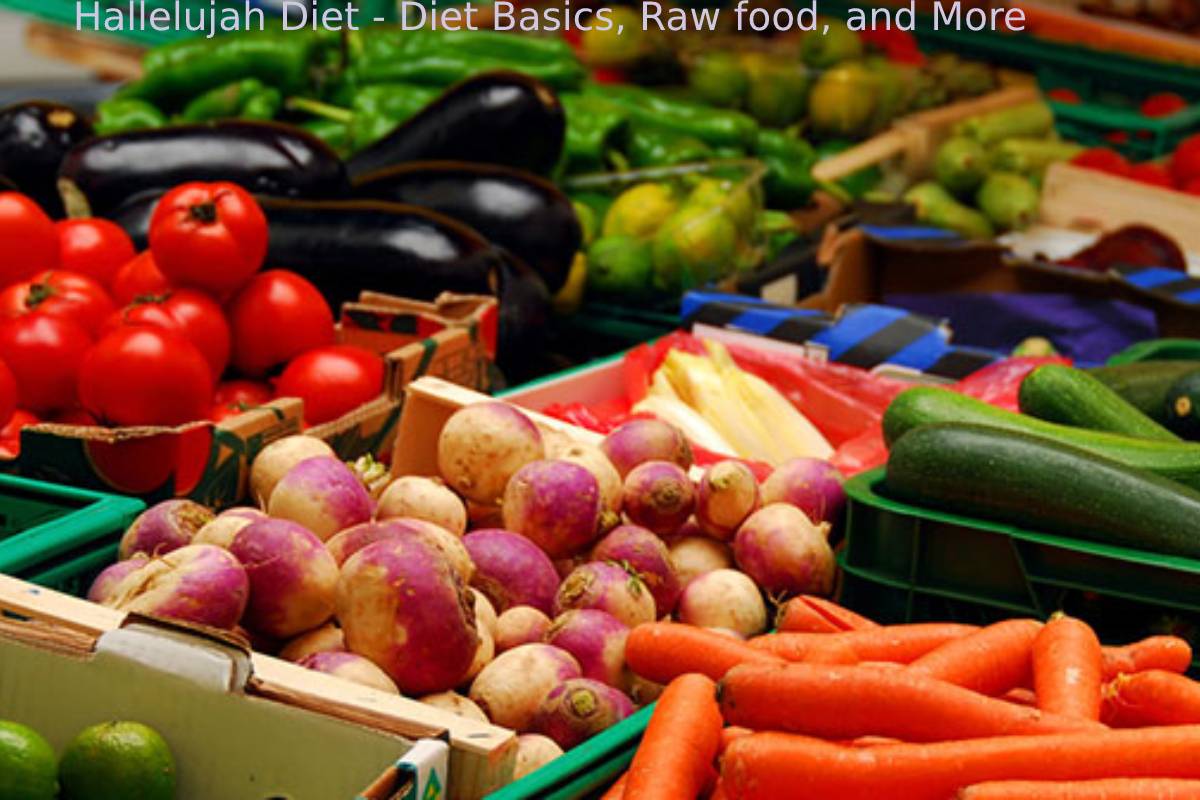Hallelujah Diet
The Hallelujah diet is a plant-based diet that emphasizes fresh fruits and vegetables and is based on biblical scripture.
On the other hand, it touted the use of entire meals and premium supplements to resurrect the body’s healing processes and promised to cure more than 170 ailments.
Despite the extreme restrictions and major lifestyle changes required by the diet, the programme provides tools and instructional materials to help you begin and maintain the diet over time.
How does it function?
15% of the raw and 85% of the cooked plant-based foods on the Hallelujah diet are consumed.
Additionally, the program’s supplement kits assist in completing nutritional gaps and enhancing your health.
The diet is broken down into four steps:
- The first step is to eat fresh fruits, vegetables, nuts, and seeds.
- During this stage, unhealthy plant-based foods are replaced with better ones, such as dairy, meat, processed carbs, sugar, and salt.
- The third step of the programme involves juicing and using the unheated organic juice powder BarleyMax supplement to enhance nutrient absorption.
- The last stage is supplementation, which aims to make up for any deficits by providing DHA, iodine, selenium, vitamin B12, and vitamin D3.
- However, the diet provides several supplement kits that change depending on your health. Starting with the starting kit, which contains BarleyMax and Fiber Cleanse, is an option.
- As an alternative, you can choose the Immune Booster or Detox kits or buy supplements separately, such as probiotics, vitamins and minerals, superfoods, protein powders, and menopause-specific choices.
Hallelujah Diet Basics
But after learning that he had cancer, Pastor George M. Malkmus developed the Hallelujah diet as a means of searching for a biblically-based, all-natural method that would enable his body to heal itself.
According to the Quran, eating more plant-based meals should take precedence over those derived from animals.
As a result, the Hallelujah diet substitutes organic, clean, raw plant-based foods, mainly fruits and vegetables, for processed, refined, and animal-based foods.
It includes a four-step plant-based eating plan and supplement packages designed to rid your body of toxins that cause illness.
The diet offers natural juices, organic protein bars, workout plans, webinars, and recipes as part of its instructional materials, which are included in the calculation of the program’s supplements.
The program also offers the Hallelujah Recovery Diet and Rescue Plans for those with autoimmune, cardiac, cancer, diabetes, arthritis, and irritable bowel syndrome (IBS).
The goal of release plans is to boost your immune system’s capacity for healing.
There is also the Perfect Detox plan, a fasting regimen that entails a 5-day cleanse during which you consume just 6 of their supplements and is repeated monthly for three months.
With the Hallelujah diet, you can restore your immune system and reverse disease.
Foods to eat and avoid
- All processed and animal foods are prohibited on the Hallelujah diet. The diet categorizes foods into three groups: natural foods, cooked foods, and items to avoid because it promotes a higher intake of raw foods.
A raw meal
- 85% of your daily consumption should consist of the following foods:
Vegetables, all of which are raw
Fruit: fresh, organic, dried fruit free of sulphur; fruits should not make up more than 15% of your daily calorie intake.
Grains: Dried Crackers and Soaked Oats. Dry Granola with Unprocessed Muesli
Beans: Chickpeas, lentils, mung beans, and green beans that have sprouted.
- Among the high-protein plant foods used instead of meat are sprouted beans, chia seeds, and hemp seeds.
- Raw almond butter, pumpkin seeds, walnuts, macadamia nuts, and sunflower seeds.
- Among the oils and fats are avocado oil, flaxseed oil, extra virgin olive oil, virgin coconut oil, and Udo oil, a combination of vegetarian omega-3 oils.
- Dairy: Only dairy substitutes, such as “fruit spreads” are made from frozen bananas, strawberries, blueberries. Or fresh almond milk.
- Drinks: Distilled water, diet juices in powder form, and freshly squeezed vegetable juices. Fruit juices with a lot of natural sugars should be avoided.
- Garlic, sweet onion, parsley, fresh or dried herbs, and salt-free seasonings are some examples of seasonings.
- Soups: cold, uncooked soups produced by combining fruit and vegetables.
- Sweets include fruit smoothies, dates, walnuts, and sliced dates in raw fruit tarts.
Foods to Avoid
It would help if you excluded these things from your diet:
Vegetables: all canned veggies that have been salted or preserved. As well as any fried vegetables.
Fruits: canned and sweetened, non-organic, and sulfur-infused dry fruits
- Grains include white rice, most cold morning cereals. And processed and bleached flour products.
- GM soybeans are a type of bean.
- Meats include cattle, fish, hog, turkey, chicken, eggs, hot dogs, sausage, bologna, and so on.
- All nuts and seeds. Should be salted or roasting.
- Oils and fats, including margarine, shortening. And anything else that contains trans fats or hydrogenated oils
- The All milk, cheese, ice cream, whipped toppings. And non-dairy creamers are considering. Dairy products.
- The Alcohol, caffeinated teas, coffee, isotonic drinks, soft drinks. And other beverages contain artificial sweeteners, refined salt, and preservatives.
- Salt and any herb containing. It are using as seasonings.
- All creamy, canned, or packaged soups that contain salt, meat. Or dairy components. Are considering soups.
- Sweets include white or brown. Sugar that has been. Thoroughly refined. Srtificial sweeteners, sugar syrups, chocolate, candies, gum, cookies, doughnuts, cakes, pies, etc.
